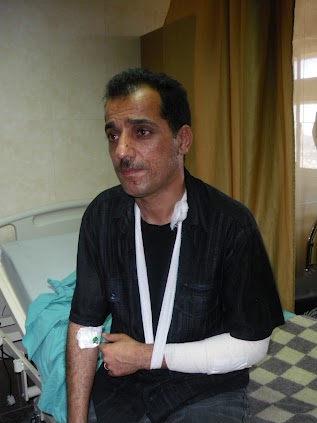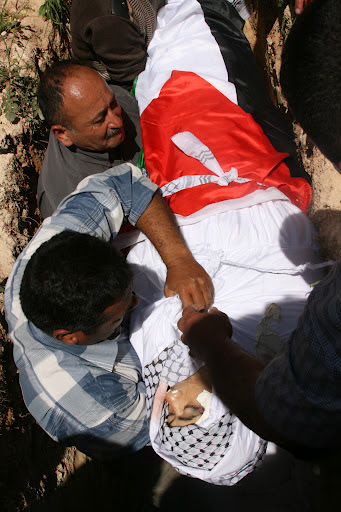Tag: Aqraba
-
Settler attack in Aqraba leaves 3 injured, 1 hospitalized
By Ben Greene and Ellie Marton 19 September 2012 | International Solidarity Movement On Monday 17, September, six Israeli settlers from the illegal settlement of Itamar attacked three members of the Benijaber family, who were walking home to the Palestinian village of Aqraba from their olive groves. Maher Hashem Mostafa Benijaber reported that he, his…
-
Yanoun: Settlers and soldiers attack village, injuring five
By Marshall Pinkerton 8th July 2012 | International Solidarity Movement, West Bank On Saturday 7 July, 2012, the village of Yanoun, located 12km southeast of Nablus, was attacked by illegal settlers from the illegal Itamar settlement. Five Palestinians were injured in the attack and large sections of agricultural land were set ablaze. The attack began…
-
Fadi Abu Zeitoun, killed as settlers attacked farmers
by Rana H. 9 April 2012 | International Solidarity Movement, West Bank Israeli settlers attacked and chased a group of Palestinian farmers last Thursday, causing a tractor to flip over during the chase, causing the death of the Palestinian driver. On Thursday, April 5th, armed settlers from the illegal Israeli colony of Itamar attacked a…


